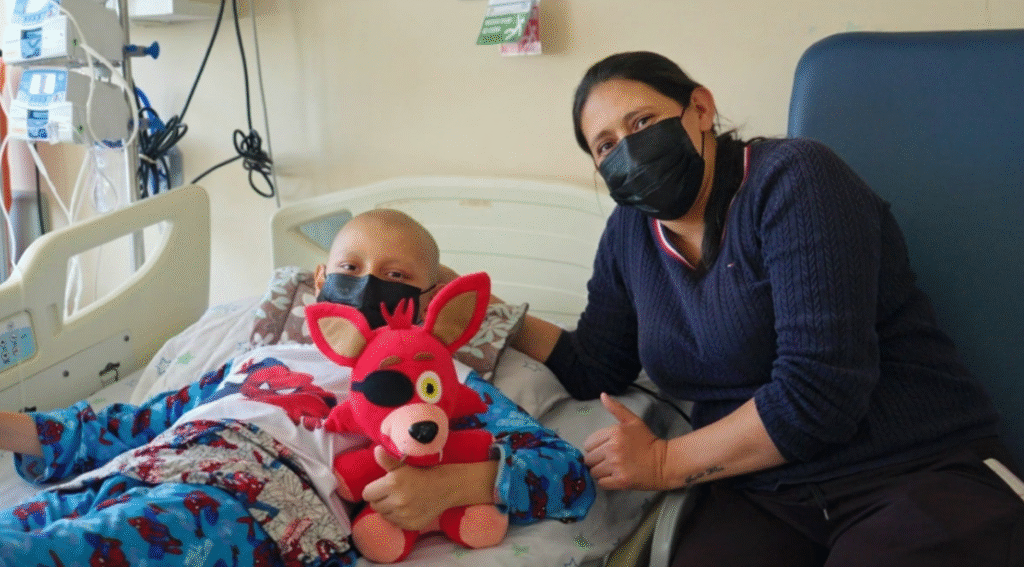On July 29, 2025, Pakistan took a powerful step forward by signing a historic agreement with the World Health Organization . This agreement places Pakistan among the few countries to join the Global Platform for Access to Childhood Cancer Medicines. From now until at least December 2027, Pakistan will receive quality-assured cancer medicines for free, benefiting over 8,000 children diagnosed with cancer each year.
Is This Deal Helps for Children in Pakistan ?
At present, only about 30% of children diagnosed with cancer in Pakistan survive, far lower than the 80% survival rate in wealthier nations. A key reason is the lack of reliable access to essential medicines. Under this new agreement, Pakistan will work to boost its survival rate to 60% by 2030. Free drug access along with international technical support could significantly improve outcomes.
WHO will help medical teams and provincial health departments with guidance and training, while UNICEF will handle procurement and delivery of the medicines to hospitals across Pakistan.
Strong Partnerships Make It Possible
Global Platform, which is co-led by WHO and St. Jude Children’s Research Hospital, also relies on UNICEF for logistics and distribution support. Its mission is to provide free, essential cancer medicines to low- and middle-income countries across the globe.

Pakistan has now become the second country in the Eastern Mediterranean region to join this initiative following Nepal and others marking a significant step forward in regional health collaboration.
By joining this platform, Pakistan not only strengthens its own healthcare system but also reaffirms its commitment to global equity in medical access. Furthermore, it sets a strong example for neighboring countries and international partners by demonstrating how collaborative, cross-border efforts can lead to life-saving outcomes for children.
The Plan Beyond Medicine: Health Awareness and Prevention
At the same event, Minister Mustafa Kamal also introduced Pakistan’s National Cholera Control Plan for 2025 2028, emphasizing the connection between prevention and treatment. He candidly addressed wider health challenges, including approximately 11,000 maternal deaths, widespread child malnutrition, inadequate sanitation, and a high fertility rate of 3.6 births per woman.
Kamal emphasized that healthcare must extend beyond hospitals access to clean water, improved sanitation, routine vaccinations, and population planning are all essential components. He encouraged families to ensure their children are vaccinated against every preventable disease.
What Families Can Expect in the Coming Years
Under the agreement, each year hundreds of hospitals across Pakistan are expected to receive free, certified cancer medicines for children. This move dramatically reduces out-of-pocket costs for families and prevents delays in treatment due to drug shortages.

WHO and UNICEF will support capacity building and logistics. Provincial health departments will integrate new drugs into routine pediatric cancer care. The aim is to build a sustainable, long-term system—not just a short-term fix so no child goes without critical treatment.
Shift Toward Health Equity
This agreement marks a significant shift in Pakistan’s approach to childhood cancer. Combining medicine provision with preventive care, vaccination promotion, and public awareness campaigns creates a stronger health system. The hope is to meet WHO’s Global Initiative target: raising survival rates to 60% by 2030.
By working with WHO, UNICEF, and St. Jude, Pakistan steps up as a partner in global health rather than just a recipient. The impact extends beyond saving children it strengthens community trust, reduces health inequality, and puts child health at the center of national policy.


 ICCI invites Bangladesh to boost investment in Pakistan
ICCI invites Bangladesh to boost investment in Pakistan  US and Pakistan Seal New Trade Deal with Promises and Oil
US and Pakistan Seal New Trade Deal with Promises and Oil  India Set to Face Pakistan in WCL Semifinal
India Set to Face Pakistan in WCL Semifinal  Did India Strike Pakistan’s Nuclear Hub Kirana Hills?
Did India Strike Pakistan’s Nuclear Hub Kirana Hills?  Pakistan-Russia Freight Train Service to Begin in August 2025
Pakistan-Russia Freight Train Service to Begin in August 2025  Imran Khan’s PTI Slams Bilawal Bhutto-Zardari
Imran Khan’s PTI Slams Bilawal Bhutto-Zardari